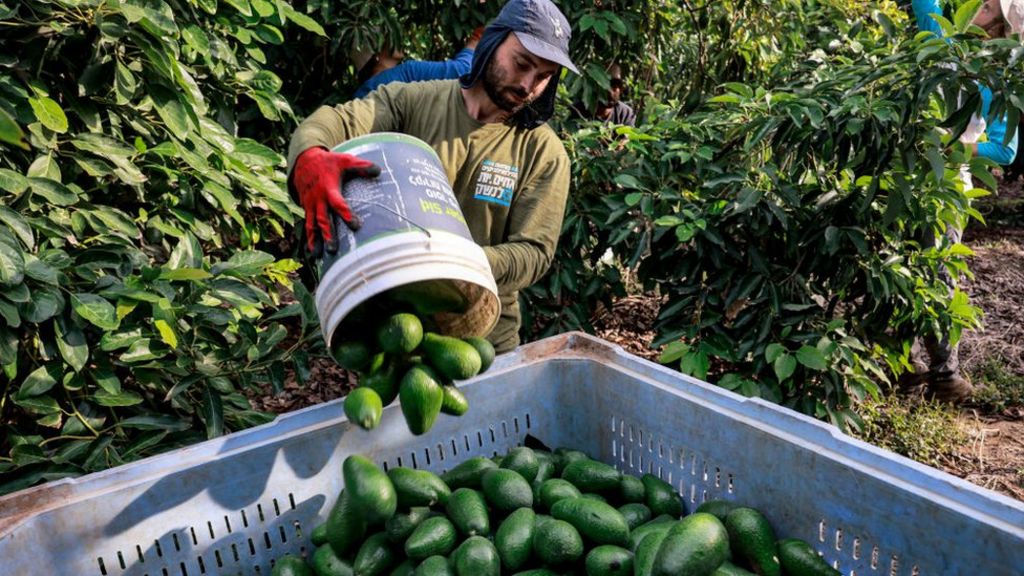Economy
Leading Experts Weigh In On Growing Canada's Economy In 2021 – Forbes


The Covid-19 pandemic and the emergence of the second wave have significantly impacted the Canadian economy. Last December, the OECD published its latest economic update that showed Canada’s economy contracting by 5.4% in 2020 — worse than the United States, which saw a 3.7% reduction in economic growth. The OECD forecasts that Canada’s economy will grow by 3.5% in 2021 and perform better than the United States, which is expected to see a 3.2% growth next year. However, despite the positive recovery signals, the fallout from the Covid-19 crisis has negatively impacted Canada’s fiscal balance and employment figures. In December, Canada’s Fall Economic Statement 2020 reported that the federal government’s deficit is expected to reach C$381.6 billion in 2020-21 — the largest deficit in dollar terms on record — with the federal debt-to-GDP ratio rising from 31.2% in 2019-20 to 50.7% in 2020-21.
Meanwhile, Statistics Canada’s latest monthly update shows the unemployment rate steadily declining to 8.5% in November 2020, down from a peak of 13.7% in May 2020 — but comparatively, Canada’s current unemployment rate still lags behind the OECD and G7 averages that stand at 7.1% and 6.1%, respectively. As part of the economic recovery, Canada has introduced programmes to support individuals, families and businesses facing hardship due to the Covid-19 downturn. The economic recovery measures have helped shore up short-term stability. However, given the continued uncertainty and structural economic changes caused by Covid-19, leading experts are recommending that the government continue to support small businesses to adopt new technologies, help upskill the workforce, and promote a green recovery by enabling cleantech companies to scale up.
Support SME digitisation to advance economic recovery measures
Canada’s small and medium-sized enterprises (SMEs) have had to endure a difficult past year. According to the Canadian Federation of Independent Business index — which measures confidence among small firms — the sentiment among Canada’s SMEs dropped to its lowest in five months after a resurgence of Covid-19 cases prompted another round of closures and containment measures in October 2020. As SMEs account for 60% of total employment and contribute more than 50% to Canada’s GDP, regenerating confidence and enabling SMEs to scale up will be critical in driving future growth. Based on a new report from the Public Policy Forum, Canadian SMEs incorporating digital technologies would adapt better to the “new normal” and be in a position to scale their business in the coming years. In an interview, Nick Van Weerdenburg, Founder and CEO at Rangle.io, stated that “using digital technologies has become necessary for SMEs to succeed in today’s economy”. He mentioned that from now on, “SMEs leveraging digital solutions would benefit from productivity gains that would allow them to improve their products and services to grow in the future”.
For SMEs to take advantage of digitalisation, Mr Van Weerdenburg suggested that “policy measures that help SMEs integrate technology into their business will be important steps”. He recommends that the government make “grants, tax credits and interest-free loans available for SMEs” to adopt digital technologies into their business. Through these measures, he pointed out that SMEs would reduce their upfront costs and invest in long-term solutions that would drive business growth. For Canada’s economy, the steps to support SMEs digitalisation could also have broader benefits because it could enable more SMEs to integrate with global markets and global value chains (GVCs). The OECD’s SME and Entrepreneurship Outlook 2019 highlighted that digitalisation helps SMEs reduce size disadvantages in international trade and capitalise on growth opportunities abroad. Because trade plays a vital role in Canada’s economy — representing 66% of GDP and with one in every five Canadian jobs being directly linked to exports — the adoption of digital technology among SMEs could enable more firms to export their products and promote long-term economic growth in Canada.
Provide equal access to skills training for inclusive growth
According to the OECD’s latest report on Canada’s economy, the adoption of digital solutions across sectors in response to economic challenges will likely continue to accelerate post-Covid-19. Although the shift to integrate new technologies offers firms the opportunity to boost productivity, it also creates segments in the workforce that become vulnerable to the changes. This results in jobs changing over time, requiring the workforce to access upskilling opportunities to remain employable. Simultaneously, firms need the talent to grow, and having a productive workforce is vital to their success. In the Business Development Bank of Canada’s latest survey, 67% of the firms surveyed indicated challenges to recruiting now that was not necessarily an issue before the pandemic, with specialised workers being the most challenging hiring category. Given the pace of technological change, Canada will need to help firms leverage technology and help workers access skills training to generate productivity growth. To prepare the workforce for the changes in the economy, Pedro Barata, Executive Director at Future Skills Centre, stated in an interview that “strong collaboration among governments, academic institutions and businesses will be necessary to develop and deliver programmes that allow workers to acquire the skills needed in their region and industry”.
As technology is playing an increasingly important role in today’s economy, Mr Barata pointed out that “the focus of skills training has to shift so that learning and upskilling become a permanent feature of any job”. Given the diverse nature of Canada’s economy, with multiple sectors playing a critical role in certain parts of the country, providing equal access to ongoing skills training will be vital in promoting inclusive growth. One way to deliver skills training programmes at-scale is through online education. In Canada, high-speed broadband coverage lags behind in rural regions where it is often needed the most, especially among youth, Indigenous and senior populations. JP Gladu, former President and CEO of the Canadian Council for Aboriginal Business, said in an interview that “high-speed internet infrastructure is an essential component to ensure reskilling and upskilling opportunities reach rural and Indigenous communities”. Through improvements in broadband infrastructure and access to skills training in the region, Mr Gladu underscored that these initiatives would “promote economic development and enable more people, especially the Indigenous communities, to build innovative businesses and contribute to the Canadian economy”. This could go a long way towards meeting the goal of equal access to skills training for inclusive growth.
Improve demand for cleantech products through structural changes
Mark Carney, former Governor of the Bank of Canada and England, recently said that the transition to net-zero “is creating the greatest commercial opportunity of our age”. As a signatory of the Paris Climate Agreement, Canada has taken steps to achieve net-zero emissions by supporting clean energy technologies through various programmes that promote green growth and seize growth opportunities both at home and abroad. In Canada’s economic strategy, the federal government set a target for the cleantech sector to reach C$20 billion in annual exports and become one of Canada’s top five exporting industries by 2025. For Canada to achieve these goals, cleantech companies will need to overcome the challenges and barriers of scaling up to capture a sizeable portion of the US$2.5 trillion in the global cleantech market. Nicholas Parker, former Chairman and Co-Founder of the Cleantech Group, who coined the term “cleantech” in 2002, said in an interview that “Canada’s cleantech sector has made great progress in recent years, but to scale up, the government needs to incentivise an increased demand for cleantech products among consumers”. To achieve this, Mr Parker suggested that reforming critical areas that “strengthen building codes and fuel standards, incentivise large pension funds to divest from fossil fuels and level the playing field by phasing out fossil fuel subsidies” will be essential steps from now on.
By adopting these reforms, Mr Parker projects that the “demand for clean energy products will increase and help cleantech companies to scale up”. For Canadian cleantech companies to compete in global markets, Mr Parker recommends that companies look to “build niche cleantech products” that leverage Canada’s existing expertise in “artificial intelligence, manufacturing and high-tech engineering”. He referred to the upgrading of Ford’s assembly plant in Oakville as an excellent example, noting that Canada’s established history in automaking enables it to be well-positioned to lead in electric vehicle production. But in Mr Parker’s opinion, the most critical component for cleantech companies to scale up lies in “integrating their high-tech solutions with existing industries to facilitate broader decarbonisation efforts”. He highlighted that Canada needs to improve corporate reporting on climate change to help cleantech companies integrate their solutions with businesses and industries. Through greater visibility into climate-related data and information, Mr Parker said that “cleantech companies would be able to develop tailored products for businesses, especially in heavy industry sectors, to decarbonise large parts of the economy and promote a green recovery”.
Special thanks to Sara MacIntyre, CEO at VUCA-SERA and Peter McArthur, Chair of the Ontario Clean Technology Industry Association for their time in providing me with an overview of Canada’s economy.
Economy
Germans Debate Longer Hours and Later Retirement as Economic Growth Falters – Bloomberg


German politicians and business leaders, despairing a weak economy, are lately broaching a once taboo topic: claiming their compatriots don’t work enough. They may have a point.
German Finance Minister Christian Lindner fired the latest salvo in this fractious debate last week when he said that “in Italy, France and elsewhere they work a lot more than we do.” Economy Minister Robert Habeck, a Green Party representative, grumbled in March about workers striking, something a country beset by labor shortages “cannot afford.” (Later that month train drivers secured a 35-hour workweek instead of 38, for the same pay.) Signaling his opposition to a four-day work week, Deutsche Bank AG Chief Executive Officer Christian Sewing in January urged Germans “to work more and work harder.”
Economy
Canada will take bigger economic hit than U.S. if Trump wins election: report – Global News
Canada stands to bear a greater economic burden than the United States if Donald Trump wins the upcoming presidential election and imposes promised tax cuts and tariffs on all U.S. imports, a new report warns.
The analysis released Tuesday by Scotiabank Economics says if Trump returns to the White House and follows through on his vow to slap a 10-per cent tariff on all imported goods — with the exception of China, which would face a 60-per cent carve-out on its U.S. exports — and countries retaliate with their own, there would be “substantial negative impacts” on the U.S. economy. GDP would likely fall by more than two per cent by 2027 relative to current forecasts, while inflation would rise 1.5 per cent, leading to a two per cent interest rate hike.
In Canada, the economic impact would be even more stark with an expected GDP drop of 3.6 per cent, given its reliance on trade with the U.S. Inflation and interest rates would also be pushed up for the next two years — 1.7 per cent and 190 basis points, respectively — the report suggests.
“What Trump is looking to do is much broader, and much more concerning, than the tariffs he imposed during his first term,” said Scotiabank’s chief economist Jean-François Perrault, who authored the report.

The report also serves as another reminder that Canada needs to urgently address its issues with lagging productivity, warning the problem makes Canada more vulnerable to economic shocks brought by trade policy changes in the U.S. and abroad.
Perrault says it’s far too late to fix the problem in time for the U.S. election in November.
“It takes a long time to change direction on productivity,” he said in an interview. “Maybe you can make up some ground over the next few quarters, but we need massive amounts of progress to get to where we need to be (to withstand U.S. economic shocks).”
Trump’s policies seen as more likely than Biden’s
Although the analysis examined the impact of policies proposed by both Trump and U.S. President Joe Biden, it focuses more on the fallout from Trump’s promises.
That’s because they’re not only more potentially harmful, Perrault said, but also because they’re more likely to be implemented than Biden’s vow to raise the corporate tax rate.
“There’s really no appetite in the U.S. right now for any kind of tax hike,” Perrault said.
Implementing a change to the corporate tax rate would require Biden’s Democrat party to control both chambers of Congress — a scenario seen as highly unlikely, given recent polling. Trump’s proposals, meanwhile, are seen as more likely to be implemented quickly and without congressional approval, particularly his expanded tariffs.
During his presidency, Trump imposed tariffs on about US$50 billion worth of Chinese goods imported to the U.S., later expanding to another US$300 billion, sparking a trade war with China. Many of those tariffs have remained in place under the Biden administration.
Trump also slapped tariffs up to 25 per cent on imported washing machines, solar panels, steel and aluminum in 2018. Canada and Mexico were later exempted from the steel and aluminum tariffs in 2019, although the Canadian aluminum tariff was briefly reintroduced in 2020.

U.S. government data shows those tariffs — none of which were legislated or approved by Congress — have cost American manufacturers more than US$230 billion as of March 2024 and have shrunk the U.S. economy by 0.3 per cent.
Trump has repeatedly claimed tariffs serve to punish unfair trade practices from other countries, despite agreement among economists that they raise prices for American consumers, and says he wants to expand them to 10 per cent on all imported goods from every country if he wins in November. He has also said he will seek a 100 per cent tariff on imported cars, and carve out a 60 per cent tariff for Chinese imports specifically.
The most likely scenario — a continuation of Trump’s 2017 tax cuts beyond their 2025 expiration combined with across-the-board tariffs — would see Canada’s GDP stay three per cent lower long-term, and just over one-per cent lower in the U.S.
The Scotiabank report says the economic harm from the tariffs can be reduced on both sides of the Canada-U.S. border if Canada and Mexico negotiate an exemption with the U.S. under the Canada-United States-Mexico Agreement (CUSMA), which replaced the North American Free Trade Agreement (NAFTA) during the Trump administration.
Scotiabank predicts in that scenario, Canada’s GDP would only fall by 1.4 per cent in the short term — half the drop forecast without an exemption — and 0.3 per cent in the long term, while U.S. GDP would fall 1.7 per cent and 1.2 per cent, respectively.
Perrault says he’s “hopeful” such a carve-out could be negotiated, even though Trump would likely insist on further concessions that benefit U.S. trade. That “bigger stick” approach could be somewhat limited compared to the contentious CUSMA negotiations, however.
“Trump owns CUSMA, so he wouldn’t be in as much of a position to throw it away,” he said. “So maybe we get a little bit of a break.”

The report also examines the impact of Trump’s repeated vow to mass deport roughly 10 million undocumented immigrants living illegally in the U.S., which Perrault admits would be “politically and logistically infeasible.” It would also be economically harmful, the analysis found, permanently reducing both U.S. employment and GDP by three per cent, though the impact on Canada would be negligible.
The analysis says Canada and the U.S. could see additional economic impacts due to a number of scenarios it didn’t explore, including China retaliating to tariffs by unloading its U.S. Treasury holdings; further debt ceiling and budgetary crises in the U.S.; Trump’s appeasement of aggressive foreign adversaries like Russia and China; and domestic civil disorder regardless of who wins the U.S. elections.
Perrault said the findings also underscore the key difference between Trump and Biden as Canadian trade partners.
“Biden seems to view negotiations from a collaborative approach: how can everyone come away with a win?” he said. “Trump doesn’t see it that way. He’s very much in the mindset of, ‘How will this benefit me?’”
More on Money
© 2024 Global News, a division of Corus Entertainment Inc.
Economy
'We need a miracle' – Israeli and Palestinian economies battered by war – BBC.com


More than six months into the devastating Gaza war, its impact on the Israeli and Palestinian economies has been huge.
Nearly all economic activity in Gaza has been wiped out and the World Bank says the war has also hit Palestinian businesses in the occupied West Bank hard.
As Israelis mark the Jewish festival of Passover, the much-vaunted “start-up nation” is also trying to remain an attractive proposition for investors.
The cobbled streets of Jerusalem’s Old City are eerily quiet. There are none of the long queues to visit the holy sites – at least those that remain open.
Just after Easter and Ramadan and right in the middle of Passover, all four quarters of the Old City should be teeming with visitors.
Just 68,000 tourists arrived in Israel in February, according to the country’s Central Bureau of Statistics. That’s down massively from 319,100 visitors in the same month last year.
While it may be surprising that any visitors pass through Jerusalem at a time of such tension, many of those who do are religious pilgrims from across the globe who will have paid for their journeys well in advance.
Zak’s Jerusalem Gifts was one of only a handful of stores on Christian Quarter Street in the Old City, which is situated in occupied East Jerusalem, to have bothered opening up on the day I passed by.
“We’re only really doing online sales,” says Zak, whose business specialises in antiques and biblical coins.
“There are no actual people. The last week, after the Iran-Israel escalation, business dropped down again. So we are just hoping that after the holidays some big major miracle will happen.”
It’s not just in Jerusalem’s Old City that they need a miracle.
Some 250km (150 miles) further north, on Israel’s volatile border with Lebanon, almost daily exchanges of fire with Hezbollah since the war in Gaza began have forced the Israeli army to close much of the area and 80,000 residents have been evacuated further south. A similar number of Lebanese have been forced to leave their homes on the other side of the border.
Agriculture in this part of Israel is another economic sector that has been hit hard.
Ofer “Poshko” Moskovitz isn’t really permitted to enter his avocado orchard in the kibbutz of Misgav Am because of its proximity to the border. But he occasionally ventures in anyway, walking wistfully among the trees, to gaze at all of his “money falling on the ground”.
“I must go to pick in the orchard because it’s very important for the next season,” Poshko says. “If I don’t pick this fruit, the next season will be a very poor one.”
He says he is losing a lot of money because he can’t pick the avocados – around 2m shekels ($530,000; £430,000) this season, he says.


Although they provide a living for thousands of people, agriculture and tourism account for relatively small parts of both the Israeli or Palestinian economies.
So what does the wider picture show?
Last week ratings agency S&P Global cut Israel’s long-term ratings (to A-plus from AA-minus) reflecting a loss of market confidence after increased tensions between Israel and Iran and concerns the war in Gaza could spread across the wider Middle East.
That loss of confidence was also reflected in falling Israeli GDP – the total value of goods and services produced in the economy – which decreased by 5.7% in the last quarter of 2023. Many Israelis though say the country’s renowned high-tech and start-up sector is proving to be more “war-proof” than expected.
The coastal city of Tel Aviv is only 54km from Jerusalem. More pertinently, perhaps, it’s less than 70km from Gaza.
At times, you’d be forgiven for forgetting – however momentarily – that Israel is embroiled in its longest war since independence in 1948.


Families make the most of the early summer sun to play in the surf, couples eat lunch in the many open-air beach restaurants and young people strum away on guitars on the green spaces between the coastal road and the Mediterranean.
The backdrop is a city that is economically active and physically growing fast.
“They joke that Israel’s national bird should be the crane – the mechanical kind!” says Jon Medved, founder and CEO of the online global venture investment platform Our Crowd.
An engaging character with an overwhelmingly upbeat view of his world, Medved tells me that, “in the first quarter of this year, almost $2bn was invested in Israeli start-ups… We’re having one of the best years we’ve ever had. People who are engaged with Israel are not disengaging.”
Medved insists that, despite everything, Israel is still the “start-up nation” and a good option for would-be investors.
“There are 400 multinational corporations that have operations here. Not a single multinational, has closed its operation in Israel since the war.”
To an extent, Elise Brezis agrees with Mr Medved’s assessment.
The economics professor at Bar-Ilan University near Tel Aviv acknowledges that despite the last quarter’s GDP figures, Israel’s economy remains “remarkably resilient”.
“When it comes to tourism, yes, we have a reduction in exports. But we had also reduction in imports,” says Brezis. “So in fact, the balance of payments is still okay. That’s what is so problematic is that from the data, you don’t really feel that there is such a terrible situation in Israel.”
But Prof Brezis detects a wider malaise in Israeli society that isn’t reflected in economic data.
“Israel’s economy might be robust, but Israeli society is not robust right now. It’s like looking at a person and saying, ‘Wow, his salary is high,’ […] but in fact he’s depressed. And he’s thinking, ‘What will I do with my life?’ – That’s exactly Israel today.”
If the outlook in Israel is mixed, then across the separation barrier that divides Jerusalem and Bethlehem the view from the Palestinian side is overwhelmingly bleak.


Tourism is especially important to the economies of towns like Bethlehem in the occupied West Bank.
While some people are still heading to Jerusalem’s sites, in the place where Christians believe Jesus was born tourism “stopped immediately” after 7 October last year, says Dr Samir Hazboun, chairman of Bethlehem’s Chamber of Commerce and Industry.
That’s when Hamas attacked Israeli communities near Gaza, killing about 1,200 people, mainly civilians, taking about 250 hostages and sparking the current war.
There’s huge dependence and reliance on Israel’s economy here – but Israel virtually closed off the landlocked West Bank after 7 October and this has had a disastrous impact on the life and work of many Palestinians, Dr Hazboun says.
“The Bethlehem governorate right now is closed,” he says. “There are around 43 gates [in the Israeli security barrier] but only three are open. So with between 16,000 and 20,000 Palestinian workers from our area working in Israel, immediately, they lost their income.”
The chamber of commerce says that the revenues from local Palestinians working in Israel amounted to 22bn shekels ($5.8bn) annually.
“You can imagine the impact on the economy,” says Dr Hazboun, who is particularly concerned for the prospects for younger Palestinians the longer the war continues and more the Israeli and West Bank economies decouple.
“The younger generation now are jobless, they are not working. Many of them are talented people,” he laments.
“In June I’m expecting around 30,000 new graduates from the Palestinian universities. What they will do?
In Gaza itself the economy has been completely destroyed by six months of war. Israel’s relentless aerial bombardment and ground operations have killed 34,183 people, mostly women and children, according to the Hamas-run health ministry.
Unlike in some parts of Israel, where there is optimism around being able to ride out the storm and continue attracting investors, in the West Bank and Gaza there is little hope things will return to any kind of normal.
-
Art22 hours ago
The unmissable events taking place during London’s Digital Art Week
-
News24 hours ago
What is a halal mortgage? How interest-free home financing works in Canada
-



 Politics17 hours ago
Politics17 hours agoOpinion: Fear the politicization of pensions, no matter the politician
-
Economy23 hours ago
German Business Outlook Hits One-Year High as Economy Heals
-



 Science17 hours ago
Science17 hours agoNASA Celebrates As 1977’s Voyager 1 Phones Home At Last
-
Media16 hours ago
B.C. puts online harms bill on hold after agreement with social media companies
-



 Politics16 hours ago
Politics16 hours agoPecker’s Trump Trial Testimony Is a Lesson in Power Politics
-
Business16 hours ago
Oil Firms Doubtful Trans Mountain Pipeline Will Start Full Service by May 1st







